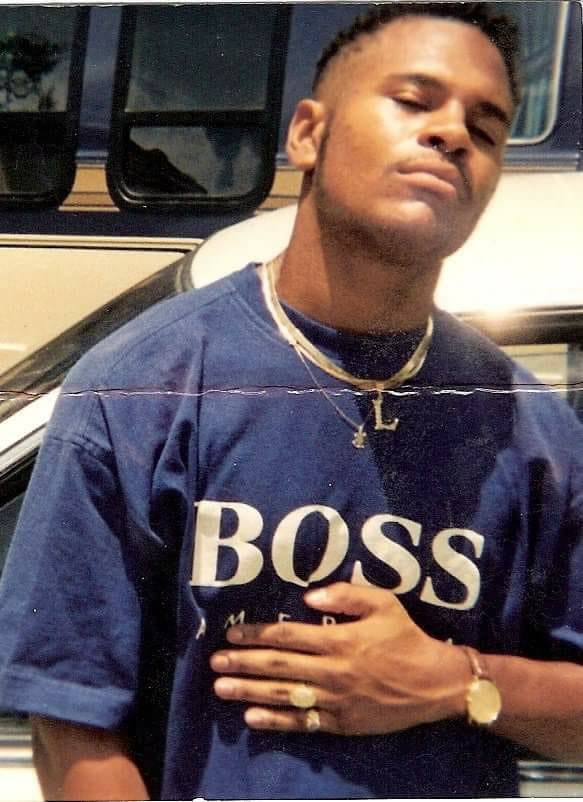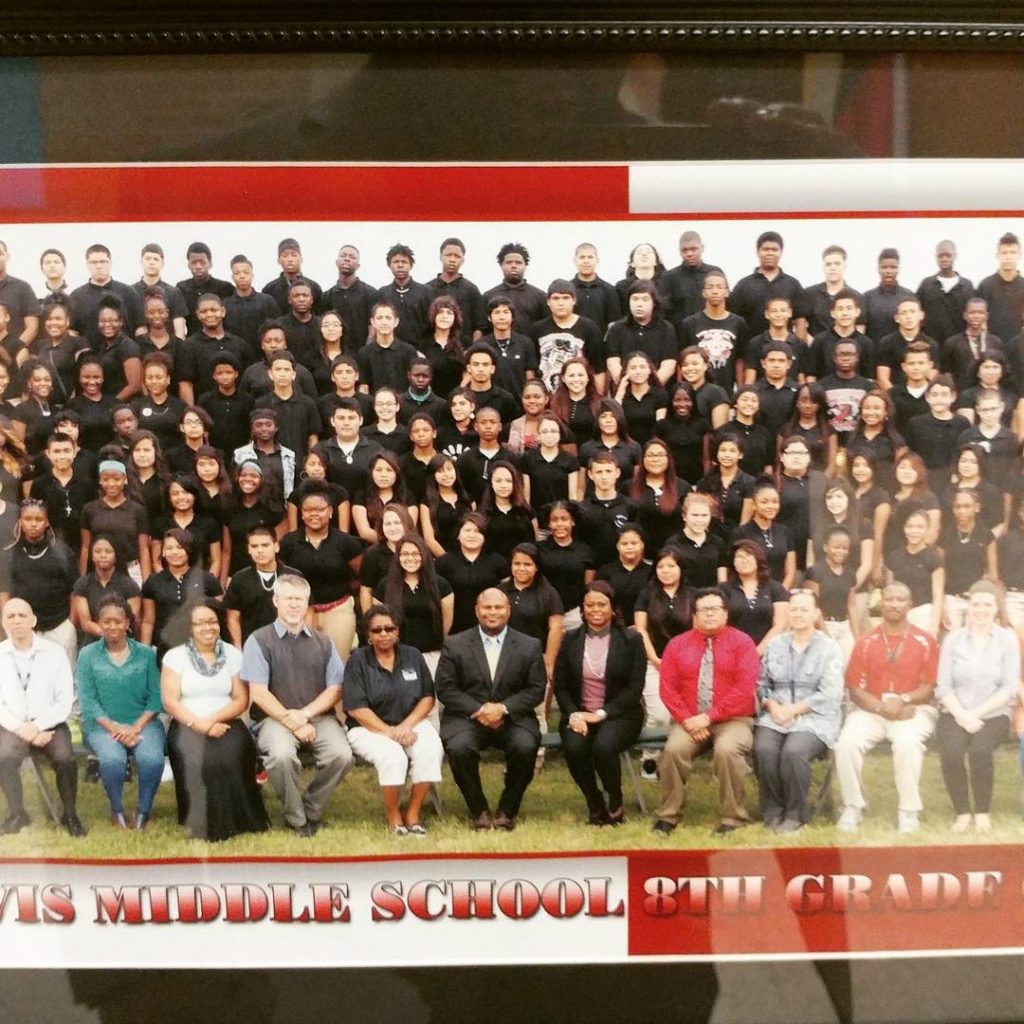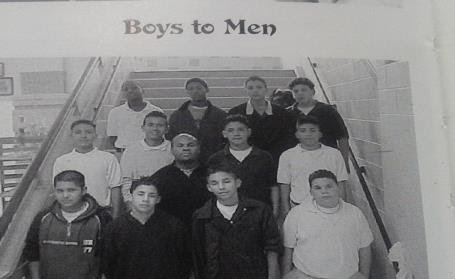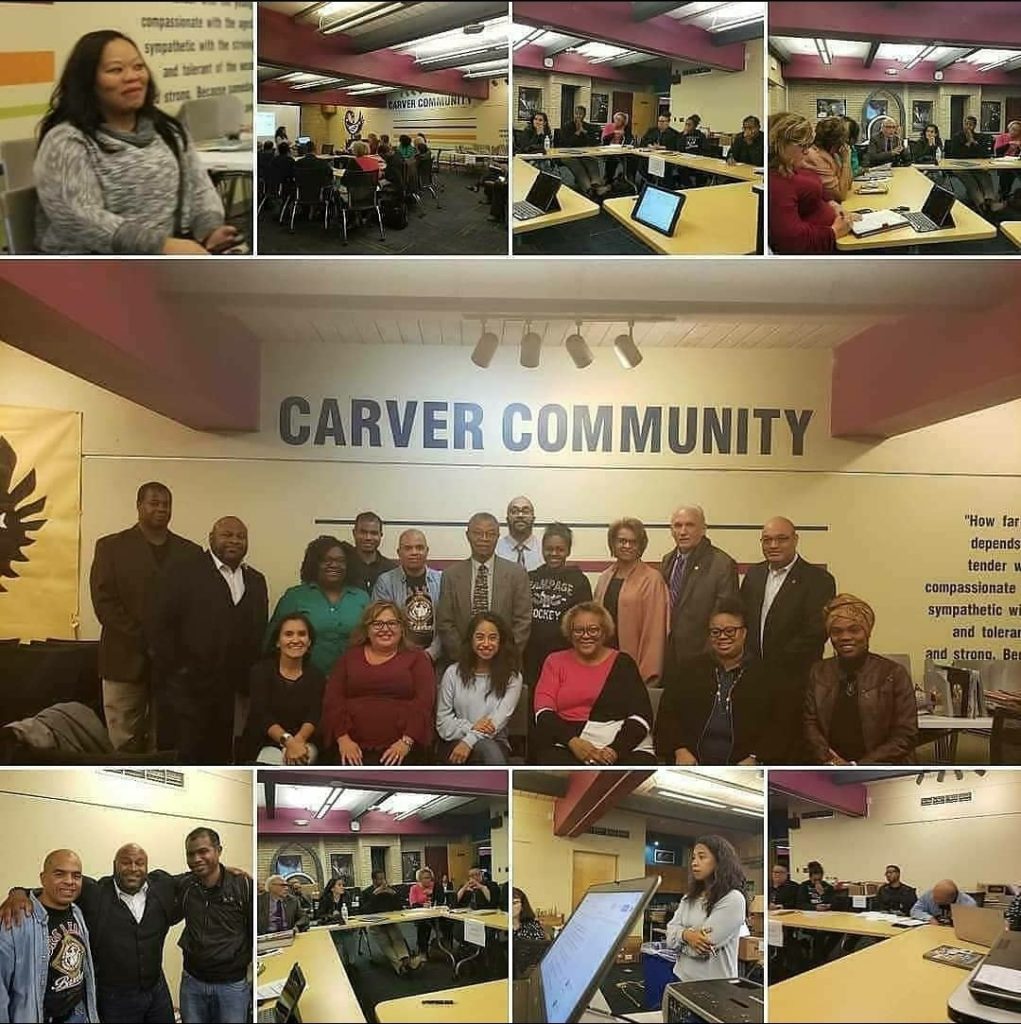


Dr. Lawrence Scott currently serves as an Associate Professor of Educational Leadership at Texas A&M University-San Antonio. Being the first African American to be Awarded San Antonio Business Journal’s 40 Under 40 Man of the Year in 2018, was indicative to Dr. Scott’s insatiable passion to make an indelible impact in the lives of others through education. He has dedicated his life to changing success trajectories for students at all age levels and demographic backgrounds. For his university profile, please Click Here.
Prior to teaching in higher education, Dr. Scott served over 16 years in the K-12 sector as a secondary teacher Social Studies teacher, coach, school counselor, district-level curriculum specialist for the Social Studies Department, and administrator in San Antonio ISD, a district in which he is an alumnus.
Dr. Scott is the Executive Director of the Community for Life Foundation, which has provided over three-quarters of a million dollars in scholarships to eligible college students nationally. Due to his passion to create and sustain equitable educational opportunities for all students, Dr. Scott founded S.E.N.D. Consulting, which specializes in training educators, counselors, administrators, parents, community leaders and stakeholders on “best practices” to reach at-risk students. He has provided leadership and community outreach trainings for many universities, school districts, churches and even organizations such as Teach for America, SA Youth, Catholic Charities, the Federal Bureau of Investigation (FBI), Educational Testing Services (ETS), and the NBA Team San Antonio Spurs Sports and Entertainment staff. He also led a nationwide advisory team of experts that advised the Texas State Board of Education in the passage and implementation of the African American Studies Course curriculum for high schools in Texas. He has also served on the Affirmative Action Advisory Committee for the City of San Antonio. Dr. Scott has also been featured in local and national media outlets for his work and expertise in urban education. He was also a member of the Community Resource Group (CRG) that advised the fortune 500 CEOs of San Antonio on equity in education, economic development, and safety and justice. This task force was created by Mr. R.C. Buford, the CEO of the San Antonio Spurs. The initial investment of the CRG initiative was 13 Million dollars to varying community and equity-based initiatives.
He was recently featured on several Sinclair Broadcasting national townhalls regarding culturally responsive curricula, educational equity, as well as school leadership and safety, that involved state and national policymakers such as former U.S. HUD Secretary, Dr. Ben Carson, former senior official in the U.S. Department of Justice, Ian Prior, former Spokeswoman for the U.S. Department of Education Angela Morbito, Armstrong Williams, and Texas State Senator Roland Martinez. He also was featured as an expert contributor on school safety on WAVY News 10 in Virginia, following the school shooting involving a 6 year old student and his teacher.
He received his Bachelor’s Degree from St. Mary’s University in Political Science, History, and Education. He has a Master’s degree in Educational Psychology and Counseling from the University of Texas in San Antonio, and a Ph.D. in Organizational Leadership with a focus in Educational Leadership from the University of the Incarnate Word. His research interest includes non-cognitive factors influencing academic success of underrepresented populations, leadership development, and urban school and community relations. He lives in San Antonio, Texas with his wife Melissa, and their children Alexia, Gabriella, Christian, Alyssa, and Alessandra.
Media Coverage: https://drlawrencescott.com/home/media-coverage/
Media Agent Contact: https://www.hdreps.com/talent/dr.-lawrence-scott.html
University Website: https://apps.tamusa.edu/course-information/my-profile/faculty-Profile.php?ID=289





This Is How We Can Help
S.E.N.D. Educational Services
Dr. Scott has traveled around the world, produced various musical projects as the CEO and founder of LSC ministries, began many mentoring projects such as Boys to Men and Club 40, but his passion has always been educating at-risk youth. As a result, he began S.E.N.D. consulting, which specializes in educating and training educators, parents, and communities on methods of reaching at-risk youth, underrepresented urban populations, and students from low-socioeconomic areas. Dr. Scott has been a guest lecturing and speaker at various universities, conferences, and symposiums with topics ranging from “Drop-Out Prevention” to “How to Reach the Unreachable Student as a New Teacher.” He has taught at the collegiate level to help prospective educational leaders, while motivating and training current students, teachers, parents, and community leaders on how to successfully reach at-risk youth.
Whether its to encourage your students to reach their fullest academic potential and walk in Purpose, or training your school or community leaders and how to guide their organizations or communities, or use research and resources to ensure your organization is using best practices to operate at optimal levels, we are ready to serve!
My Teaching Philosophy
Holistic Education is KEY to Student Educational Success
Being an educator is not a career, but rather a calling. As a product of a neighborhood devoid of hope and the ubiquity of impoverishment, I had to make educational choices that were conducive to not just my growth and development, but the development of my family, friends, and the community that helped to shape my worldview. As an educational leader, I plan to use my expertise in educational success
to bridge the gap between the empowered and disempowered, privileged and underprivileged, and the educated and uneducated. My philosophy can be simplified by the following statement: To do whatever it takes to help students obtain, understand, and practically apply the information that they learn in any classroom setting. Throughout my teaching career, I have employed several strategies to guarantee learning in the classroom.
Through adequately adapting to the personal pedagogical needs of each student, providing a student-centered environment, and constantly evaluating progress, I have succeeded as a middle school teacher, school counselor, teacher specialist (teacher trainer), secondary school administrator, and now professor of educational leadership. My goal for the first class is to ascertain the needs of my students, while setting a corporate goal for my classroom. This method can be achieved through simply having students introduce themselves and encourage building educational relationships with other students.
As a teacher specialist for SAISD, one of the needs I readily recognized was that I can not mentor each of the 150 teachers under my purview; one of my personal goals for my teachers was to empower a cadre of teachers who can help to develop other teachers. Under my leadership, we established measurable results of our networking system because our veteran teachers were constantly reaching out to our novice teachers. We also built a weblog sector on our website to facilitate the communicative valves whereby teachers can share ideas and strategies that have proven to work in their classrooms. Through our workshops, I noticed that our teachers did not just learn from us, but they learn from each other. I also realized that knowing the student population (pedagogical content) helped me adjust instructional strategies to facilitate their learning. Using collaborative group work, student-led presentations, and reflective writing assignments has helped students develop their multiple intelligences (audio, visual, tactile, and kinesthetic) and modalities of our students (Gardner, 1993). Creating a student-centered environment will give students the confidence and leadership to guarantee their success in my classroom and beyond. Invariably, I encourage students to get involved in the discussion and not learn through passively receiving deposits of information, such as a banking system (Freire, 1972).
As a professor in educational leadership as well as a consultant and media contributor, I plan to train teachers, school leaders, and any educational stakeholders on how to on how to maximize optimal learning opportunities to garner student optimal student participation. Some of the instructional strategies we would encourage our leaders to employ include: learning through group presentations (technological integration), off-campus extra-credit opportunities, and personal reflections to help them practically apply the information they are learning. As a middle school teacher, I named my class the “Zone of Success!” Each student was well aware that failure was not an option. I empowered a leadership team (a President, Vice-President, and cabinet members) that would help organize and control the educational climate and culture of the “Zone of Success!” My leaders would help refocus those who were off-task, make announcements, and lead discussion groups. To this day, many of my leaders from the “Zone of Success” are leading in their respective high schools under various capacities. When you empower and influence others to lead, you build their confidence and open the door for them to believe and see their leadership potential (Maxwell, 1998). I will help unlock your educators’ potential to engage ALL students to ensure an optimal classroom learning experience.
My teaching philosophy can be summarized by the following 10 principles:
1. All people can learn! Despite socioeconomic background, age, culture, and
ethnicity.
2. Open the heart of the student, and you will open the mind of the student. New York Times best-selling author John Maxwell quoted in his book, The 21 Irrefutable Laws of Leadership: “People don’t care how much you know until they know how much you care.” If students know that you truly care for their well-being, they will allow you to help them reach their fullest potential.
3. Two is better than one (collaborative learning). When you involve group activity, you allow others to take responsibility for the learning task.
4. Kinesthetic activities increase learning. Make the learning experience more than passive note-taking or book reading. Giving students the opportunity to pragmatically apply what they learned will increase their learning retention and potential.
5. Learning is a life-long process. Allow learners to be the experts. Each learner has specialties to contribute to the group’s learning experience. John Maxwell quote: “People take part in what they help create.” When you keep student expectation high, students will rise to the challenge. The implication is to take the experiences of the learner and make the content information understandable and relevant.
6. Show learners how they can be successful (competent). People gain momentum when they see the finish line. It is important to goal set as a group as well as individually. As an instructor, it is my duty to help students recognize their learning process through metacognitive, reflection-based techniques.
7. Involve Debriefing and discussion. Give learners a chance to explain their decision making process. This will allow students to remain accountable for their learning.
8. Be a facilitator not just a teacher. A facilitator’s role creates dialogical exchange. Dialogical exchanges eliminates barriers for learners by providing an environment conducive to successful learning processes.
9. Keep a learner-centered approach. It is important that I recognize the learning styles of each class, each group, each student. Knowing the various learning styles of my students will facilitate any instructional modifications that need to be made.
10. Continue to evaluate my progress. I must be cognizant of the need to improve my instructional style, research methods and deliberation, and relationship with the students, faculty and staff, and the surrounding community. As I grow as an instructor, my students should become more knowledgeable with the content and gain a greater zeal for learning.
References
Maxwell, J. (1998) The 21 Irrefutable Laws of Leadership, Thomas Nelson Publisher
Freire, P. (1972). Pedagogy of the Oppressed. Harmondsworth: Penguin.